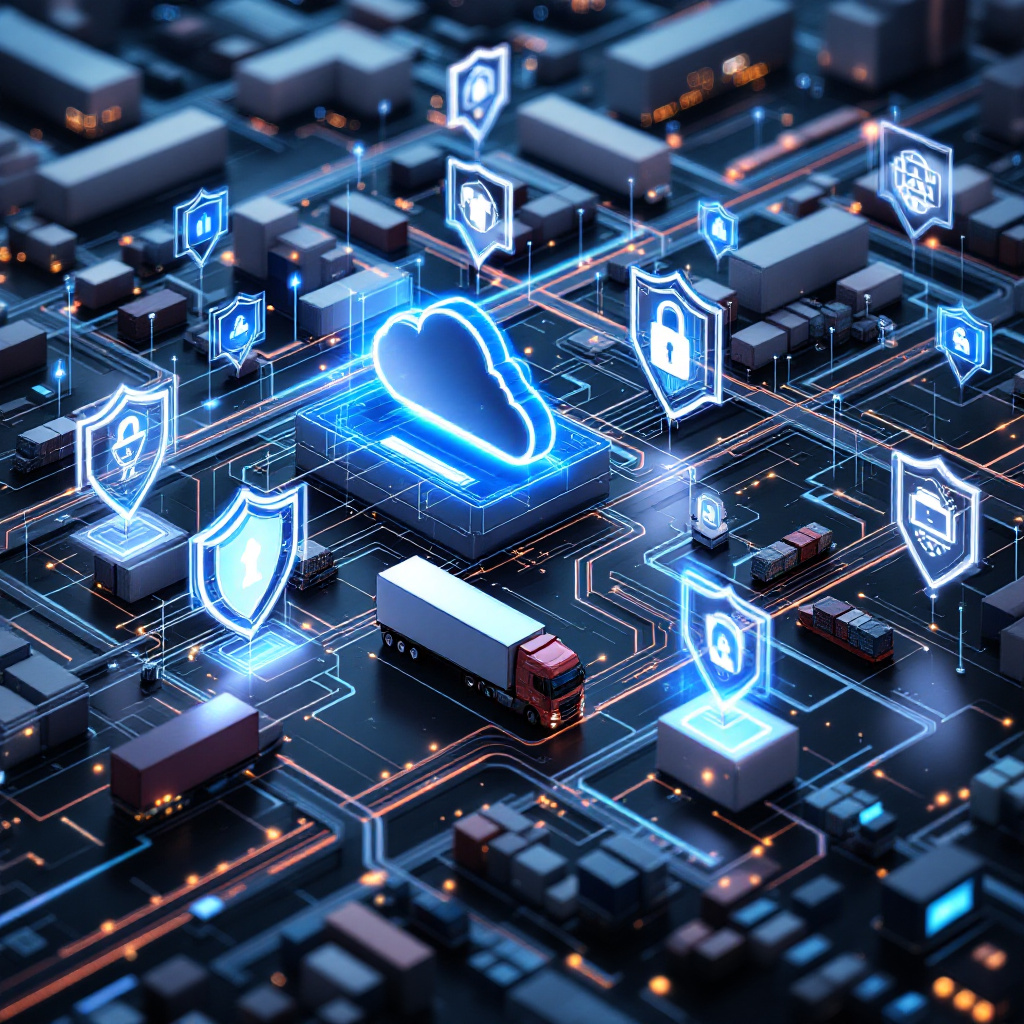Nykypäivän yhteenliitetyssä maailmassa, logistiikan kyberturvallisuus on kriittinen huolenaihe, koska teollisuus luottaa yhä enemmän digitaalitekniikkaan monimutkaisten toimitusketjujen hallinnassa. Vaikka nämä edistysaskeleet parantavat tehokkuutta, ne myös altistavat yritykset merkittäville kyberturvallisuusriskeille. Arkaluonteisten tietojen suojaaminen logistiikka-alalla on ensiarvoisen tärkeää toiminnan eheyden ja asiakkaiden luottamuksen säilyttämiseksi.
Kyberturvallisuuden merkitys logistiikassa
Logistiikkayritykset käsittelevät valtavia määriä arkaluonteisia tietoja, kuten asiakkaiden henkilötietoja, rahoitustietoja ja yritystietoja. Tietomurto voi johtaa vakaviin seurauksiin, kuten taloudellisiin tappioihin, mainehaittoihin ja toimintahäiriöihin. Vankkojen kyberturvallisuustoimenpiteiden toteuttaminen on olennaisen tärkeää näiden tietojen suojaamiseksi ja toimitusketjun toimintojen sujuvan toiminnan varmistamiseksi.
Logistiikka-alan yleiset kyberuhat
- Phishing-hyökkäykset: Harhaanjohtavat sähköpostit tai viestit huijaavat työntekijöitä paljastamaan luottamuksellisia tietoja tai asentamaan haittaohjelmia.
- Ransomware: Haitallinen ohjelmisto salaa yrityksen tietoja, ja hyökkääjät vaativat maksua salauksen purkamisesta.
- Toimitusketjun hyökkäykset: Tietoverkkorikolliset tunkeutuvat järjestelmiin kolmannen osapuolen toimittajien tai kumppaneiden haavoittuvuuksien kautta.
- Sisäpiirin uhat: Työntekijöiden tai urakoitsijoiden luvattomat toimet, jotka voivat olla ilkivaltaisia tai tahattomia ja jotka johtavat tietomurtoihin.
Strategiat tietojen suojaamiseksi logistiikassa
- Vahvan pääsynvalvonnan toteuttaminen
- Rajoita järjestelmän käyttöoikeuksia roolien ja vastuualueiden perusteella.
- Käytä monitekijätodennusta (MFA) lisäturvakerroksen lisäämiseksi.
- Järjestelmien säännöllinen päivittäminen ja korjaaminen
- Pidä ohjelmistot ja laitteistot ajan tasalla haavoittuvuuksien vähentämiseksi.
- Laadi rutiiniaikataulu järjestelmän ylläpitoa ja päivityksiä varten.
- Työntekijöiden koulutus ja tietoisuus
- Järjestä säännöllisesti kyberturvallisuuskoulutusta.
- Edistetään tietoisuutta yleisistä uhkista, kuten tietojenkalastelusta ja sosiaalisesta manipuloinnista.
- Tietojen salaus
- Salaa arkaluonteiset tiedot sekä siirron aikana että levossa luvattoman käytön estämiseksi.
- Kehitä häiriötilanteisiin reagoimissuunnitelma
- Luo kattava suunnitelma, jossa kuvataan yksityiskohtaisesti toimet, joihin on ryhdyttävä tietoverkkohäiriön sattuessa.
- Testaa ja päivitä suunnitelma säännöllisesti tehokkuuden varmistamiseksi.
- Kolmannen osapuolen riskien arviointi
- Arvioi myyjien ja kumppaneiden kyberturvallisuuskäytäntöjä.
- Sisällytä turvallisuusvaatimukset sopimuksiin.
Lainsäädännön noudattaminen
Tietosuojasäännösten noudattaminen on logistiikkayrityksille ratkaisevan tärkeää. Noudattaminen ei ainoastaan estä oikeudellisia seuraamuksia vaan myös lisää asiakkaiden luottamusta. Keskeisiä säännöksiä ovat mm:
- Yleinen tietosuoja-asetus (GDPR): Sovelletaan EU:n kansalaisten tietoja käsitteleviin yrityksiin, ja se edellyttää tiukkoja tietosuojaa koskevia toimenpiteitä.
- Kalifornian kuluttajansuojalaki (CCPA): Tarjoaa Kalifornian asukkaille tietosuojaa koskevat oikeudet, ja vaatii yrityksiä toteuttamaan erityisiä suojatoimia.
Teknologian rooli kyberturvallisuuden parantamisessa
Kehittyneet teknologiat voivat tukea logistiikan kyberturvallisuutta:
- Tekoäly (AI) ja koneoppiminen: Havaitse poikkeamat ja mahdolliset uhat reaaliaikaisesti.
- Lohkoketju: Tarjoaa läpinäkyviä ja väärentämissuojattuja tietueita, mikä parantaa tietojen eheyttä.
- Esineiden internetin (IoT) turvallisuus: Suojaa logistiikkatoiminnoissa käytettävät liitetyt laitteet.
Päätelmä
Logistiikka-alan jatkaessa digitaalista muutosta kyberturvallisuuden asettaminen etusijalle on olennaisen tärkeää. Toteuttamalla kattavia turvatoimia, pysymällä ajan tasalla uusista uhkista ja edistämällä turvallisuustietoisuuden kulttuuria logistiikkayritykset voivat suojella tietojaan ja säilyttää asiakkaidensa ja kumppaneidensa luottamuksen.

 Logistiikan kyberturvallisuus">
Logistiikan kyberturvallisuus">
